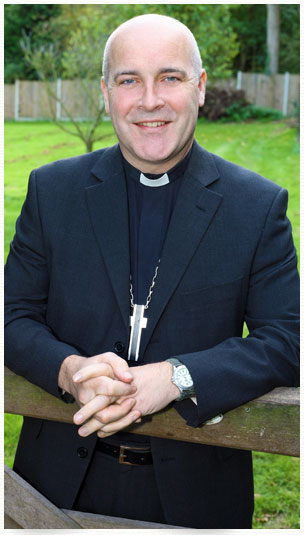The Church of England is beginning a review process that may lead to far fewer paid clergy and a “massive shrinkage” in the number of parish churches and dioceses, according to an article in The Times on May 24.
The Rt. Rev. Stephen Cottrell, the Archbishop of York-designate, will chair the review, which was launched in a videoconference of the church’s House of Bishops last week.
The shift to online worship during the current pandemic has shaped a conversation viewed by some as long-delayed. “We are at a crossroads,” an unnamed source told The Times, “Everything’s a blank sheet of paper. It is allowing us to get back to that question of first principle, what it means to be the church. People haven’t stopped gathering for worship. They’ve been doing it over Zoom or over YouTube. I’m certainly not saying we don’t need our church buildings, but we need to look at how many we need and how we use them.”
Church of England dioceses are under increasing financial pressure, as the church scrambles to pay for its 42 diocesan cathedrals and 16,000 churches in the midst of a global crisis. Some, like the Diocese of Liverpool, have furloughed most diocesan staff during lockdown because parish share payments have declined. Bishop Cottrell’s strategy and vision commission will consider possibilities for merging administrative functions, as well as diocesan oversight for educational institutions and clergy training.
Combining dioceses will also be considered, following a 2014 model, when the Diocese of Leeds in West Yorkshire, the church’s largest geographically, was formed through the merger of three small and financially struggling dioceses, Wakefield, Bradford, and Ripon and Leeds. The Church of England currently has 108 bishops, more than twice as many as during the Victorian era, when Sunday congregations dwarfed current gatherings.
Bishop Cottrell has a reputation as a cost-cutter willing to make unpopular choices. When central church funding for his Diocese of Chelmsford was slashed earlier this year from £3 million to £1 million, he refused to assign stipendiary clergy to parishes unable to cover the full expenses of their ministry through local church offerings. Financially struggling parishes, Bishop Cottrell said, would need to be led by a licensed lay minister or an unpaid cleric.
He also questioned the Church of England’s longstanding commitment to be “a Christian presence in every community across England,” saying, “What we are really trying to do is define what we mean by ‘church.’ I think for too long, ‘church’ has meant a building and a vicar and possibly a geographic area to serve.” He has indicated a willingness to close congregations to cut costs, though this will be complicated by the fact that 12,500 of the church’s 16,000 church buildings are heritage-listed by Historic England, protected from demolition and significant alteration, with the church obliged to make necessary repairs.
The review process will be highly controversial, as signaled by a series of tweets by the Rt. Rev. Philip North, Bishop of Burnley, who contested The Times article’s summary of the House of Bishops discussion. “Clergy deployment decisions are made by dioceses and not on Zoom meetings of the HoB. Hard to say what will come out of this crisis, but … we aim to sustain current clergy numbers and plant new congregations.”
“Any plan to reduce numbers of dioceses,” Bishop North continued, “would lead to years of pointless debates and introspection at a time when we need to be looking outwards, naming injustice and addressing a nation with a message of hope.”
About The Rt Revd Stephen Cottrell, Bishop of Chelmsford
Stephen Cottrell is Bishop of Chelmsford and was formerly Bishop of Reading. He has worked in parishes in London and Chichester, as Canon Pastor of Peterborough Cathedral, as Missioner in the Wakefield diocese and as part of Springboard, the Archbishop of Canterbury’s evangelism team. He has written widely on evangelism, spirituality and discipleship. Among his most recent books are a series of Lent and Holy Week meditations, The Things He Carried (2008), a follow up of reflections for Easter Day, The Things He Said (2009), The Nail: Being part of the Passion (2011) and Christ in the Wilderness: Reflecting on the paintings of Stanley Spencer (2012). His best selling, I Thirst (Zondervan) was the Archbishop of Canterbury’s Lent book for 2004. Other books include, From the Abundance of the Heart: Catholic evangelism for all Christians (DLT); Do Nothing to Change your Life: Discovering what happens when you stop (CHP); Hit the Ground Kneeling: Seeing leadership differently (CHP); He has also written a book of children’s stories, The Adventures of Naughty Nora (BRF).
[[] http://www.stephencottrell.org/about ]
DraggedImage.23f63aa880984d92bf388b14be81d0ad.png



